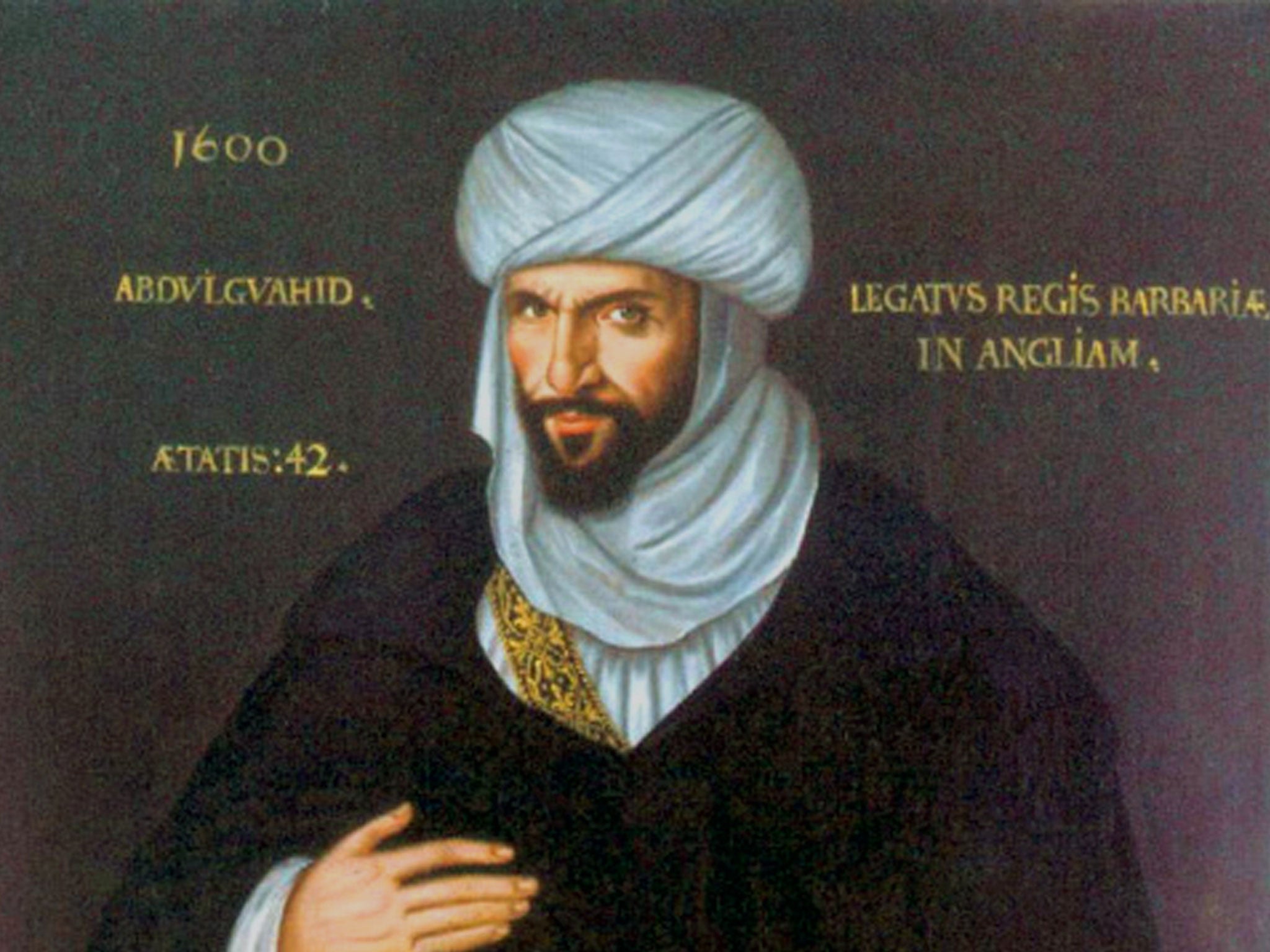This Orient Isle: Elizabethan England and the Islamic World by Jerry Brotton, book review
Tudor England was hand in glove with Islam, both in diplomacy and free trade

Your support helps us to tell the story
From reproductive rights to climate change to Big Tech, The Independent is on the ground when the story is developing. Whether it's investigating the financials of Elon Musk's pro-Trump PAC or producing our latest documentary, 'The A Word', which shines a light on the American women fighting for reproductive rights, we know how important it is to parse out the facts from the messaging.
At such a critical moment in US history, we need reporters on the ground. Your donation allows us to keep sending journalists to speak to both sides of the story.
The Independent is trusted by Americans across the entire political spectrum. And unlike many other quality news outlets, we choose not to lock Americans out of our reporting and analysis with paywalls. We believe quality journalism should be available to everyone, paid for by those who can afford it.
Your support makes all the difference.In September 1599, a 24-year-old blacksmith and musician from Warrington entered the Topkapi palace in Constantinople and began to play a clockwork organ he had built "in front of the most powerful ruler in the world". This was the Ottoman Sultan Mehmed III, and the mechanical organ – along with its young artificer – belonged to a boatload of eye-catching presents that Queen Elizabeth I had sent to help sustain the Anglo-Turkish alliance that had, fitfully, already lasted for more than two decades.
Thomas Dallam gave a virtuoso performance. Mehmed fell in love with his new toy, and offered the Englishman his pick of the Topkapi harem concubines. Dallam made his excuses and left, but was rewarded with a big bag of gold. As Jerry Brotton drily remarks, "It must have all seemed a long way from Warrington".
"By the end of Elizabeth's reign," Brotton notes, "thousands of her subjects were to be found in the Islamic world". From Morocco to Persia, they traded, soldiered, settled, negotiated, spied and (fairly frequently) converted to Islam. As a counterweight to the threat from Catholic Spain, Elizabeth had built up an "impressive network" of diplomatic alliances and free-trade deals. They bound England to the Sultanate of Morocco, and to the Ottoman and Persian empires. By 1600, this Anglo-Muslim wall against Spanish hegemony stretched almost 4,300 miles "from Marrakesh via Constantinople to Isfahan".
With Henry VIII's break with Rome and then (in 1570) Elizabeth's excommunication as a "heretic" by Pope Pius V, England found itself shunned as a rogue state by Catholic Europe. It needed friends with clout in strategic locations. Around the Mediterranean and the Middle East, only the lands of Islam could supply them. Thus the stage was set for an extraordinary half-century of adventures, deals, conspiracies and misunderstandings: a little-known story that Brotton chronicles with scholarship, assurance, and not a little charm.
He tells a very English story: the quest for the sweet deal and the quick groat usually trumps theological niceties. It runs from the Leicestershire mercer Anthony Jenkinson's meeting in Aleppo with Sultan Suleiman the Magnificent, to the mishaps and manoeuvres of the freelance diplomat Sir Anthony Sherley at the Persian court of Shah Abbas I. With a tempting trade pact or military alliance in the offing, it proved surprisingly easy for both sides to forget the little matter of whether Jesus of Nazareth was the divine Son of God or simply the last prophet before the final revelation to Mohammed.
But if this is a story of business, it also boasts plenty of show business. The human exchange that yielded treaties with Muslim powers soon reached the London stage. Brotton calculates that 60 English plays put Turks, Moors and Persians on stage between 1576 and 1603. And no writer embarked on a steeper learning curve than William Shakespeare, through the 20 years that separate the schemingly wicked – but still charismatic – Aaron the Moor in Titus Andronicus to the tragic, heroic Muslim-raised General Othello, the Moor of Venice.
During Elizabeth's reign, "Protestant England came closer to Islam than at any other time in its history until today". When England looked away from the Levant, under James I, the shift was driven in part by peace with Spain (in 1604) but mainly by the new commercial-imperial focus on south Asia and the Americas. The day of the East India and Virginia Companies had dawned.
So the age had passed when an intrepid but ruthless merchant-venturer such as Jenkinson could despatch a slave-girl known as Aura Soltana from Astrakhan as a gift for the Queen. Four years later, though, she turns up in a ledger of Elizabeth's servants as "our dear and well-beloved woman Ippolyta the Tartarian", who taught her mistress "the fashion of wearing Spanish leather shoes". What did Aura-Ippolyta herself make of her fantastic voyage? Someone should get cracking on the screenplay now.
Allen Lane, £20. Order at £18 inc. p&p from the Independent Bookshop
Join our commenting forum
Join thought-provoking conversations, follow other Independent readers and see their replies
Comments